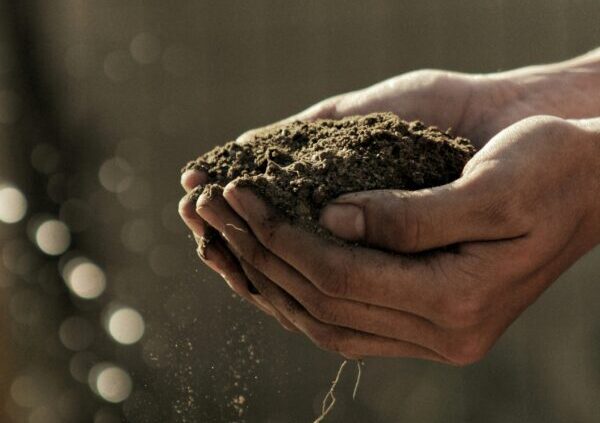Are Coffee Filter Papers Compostable?
Table of Contents
Toggle
You may be thinking, doesn’t my filter coffee habit create a lot of waste? Afterall, all those coffee grounds and filter papers just end up in the bin, shouldn’t there be a way of reusing or composting them? Well, coffee paper filters are indeed compostable in the main, there are some exceptions to this, and also some additional points to consider when it comes to sustainability.
Considering whether or not to compost your coffee filter is a noble act of sustainability awareness that should be commended. However, don’t rush to throw your coffee grounds and filters straight into the compost heap, as you may end up doing more harm than good.
There are certain elements like plastic based bonding and bleach that can actually harm your compost heap, even though you’re trying to do the right thing.
So, let’s take a closer look at coffee filter papers, and help determine whether or not they should be composted afterall.
What are Coffee Filter Papers?
Coffee filter papers are simply the filtration device used to separate ground coffee from the liquid that ends up in your cup. They are often made from paper rather than metallic mesh to strain out as much fine sediment and silt as possible, giving you a clean, smooth and light cup of coffee.
Filter papers are loved by coffee enthusiasts as they remove virtually all of the sediment from the bed of ground coffee, due to the very fine, densely packed holes within them. This allows plenty of delicious, smooth coffee to flow through, without allowing any unwanted silt into your cup.
Coffee filter papers are used in drip brew coffee devices, which use gravity and pouring technique to extract coffee oils into your cup. This is in contrast to immersion brewing (French Press, Cold Brew and AeroPress) or pressure based brewing (Espresso and Moka Pot) which use more drawn out and intense coffee extraction methods respectively.
Whether you use a bleached (white) or unbleached (brown) coffee filter paper is up to you. There is an argument that unbleached coffee filter papers offer a more ‘papery’ taste, but if either of these coffee filter papers are wetted before use, pretty much any residual taste will fade away.
Are Coffee Filter Papers Compostable?
Whilst the paper component of coffee filters itself may be compostable, other elements like glue or plastic based bonding material which hold the seams together are not necessarily compostable.
Therefore, just chucking out your coffee filters without consideration can actually do more harm than good.
Another thing to consider is whether your filter papers are bleached or not. Crisp, white, bleached coffee filters are generally considered to have less of that classic ‘papery’ taste you may find in brown, ‘natural’ filters.
However, the downside to this is that if you go ahead and add bleached filter papers to your compost heap. Chlorine is often used to bleach coffee filters, and you could very easily have these chemicals released into soil, as pointed out by Noissue here.
Therefore, opting for unbleached, natural filter papers would be your best bet if you want to put composting on top of your priorities.
How to Compost Coffee Filters
Right, let’s take a closer look at how to actually go ahead and compost your coffee filter papers. First things first, you’re going to want to get rid of any non compostable elements of your filter paper.
This means cutting off any glue or plastic sealants on the seams of the filters, as well as double checking whether or not your filters contain any harmful chemicals like chlorine.
Empty your coffee grounds into your compost heap (yes coffee grounds are also compostable), and rip or cut up your filter paper into smaller pieces so it will break down more easily.
You don’t have to rinse or clean out your filter papers, just remove enough of the grounds to allow you to easily break up the papers before adding them to your compost heap.
Are Coffee Filter Papers Recyclable?
The short answer is, generally no.
If your coffee filter papers contain any plastic adhesive, plastic coating or glue, then they won’t be recyclable OR compostable.
However, if they are natural, free from plastics and harmful chemicals, then coffee filter papers can be recycled along with all your regular paper and cardboard products.
Most coffee filters will also be stained by the coffee oils from your brew after being used. Whilst this isn’t a problem if you plan on composting them, if you want to recycle them you will struggle if the filters are stained.
What About Other Coffee Packaging?
A very valid point to raise.
Coffee packaging like disposable cups, bags of beans and pods also need to be disposed of when you’re done with them. So this begs the question, are they also compostable, or even recyclable?
Coffee Cups
Generally speaking, coffee cups are not recyclable or compostable, due to the thin layer of plastic lining within them (used for waterproofing). Whilst the plastic lids may be recyclable in some cases, coffee cups as a whole generally have to find themselves in the landfill.
Bags of Coffee Beans
Unfortunately, most bags and packaging that coffee beans come in are not recyclable, let alone compostable either. This is because they tend to be made using a composite of different materials, including plastic, metal foil, cardboard and glue.
However, there are some coffee roasters that now offer recyclable materials as part of their packaging, such as Kraft Paper and PLA (polylactic acid). Whilst these packaging solutions do exist, they are not necessarily widespread at the moment, so check your specific coffee bean packaging to be sure.
Coffee Pods
Coffee pods are generally not recyclable or compostable in regular household recycling programs. This is because of the composite materials used in their construction.
However some major brands like Nespresso and Nescafe offer services to help aid recycling their pods directly. You can visit them in store or even send your pods off in the mail to be treated and recycled by their specialist plants.
Coffee Filter Paper Alternatives
If you fancy trying something a little different from your regular coffee filter papers, or have simply run out, here’s a couple of alternatives.
Mesh
Metallic mesh coffee filters offer a reusable and sustainable alternative to regular single use filters. They can be used in a range of pour over coffee brewers, such as V60, Chemex, drip brew machines and even as standalone filters in their own right.
If you’re interested in going down this route, be sure to check the size, shape and availability of your mesh filter in comparison to the brewing device you’re using. Also, different filters have different sized holes in them, so bear this in mind when considering which one to go for, especially if you tend to use pre ground coffee.
Coffee Filter Substitutes
If you’ve run out of paper filters for your V60, Chemex of Kalita, there are a number of alternative options available to you. These can take the form of regular household items and will do a good job of making you a perfectly drinkable cup of coffee.
From paper towels to kitchen cloths, find out more about coffee filter substitutes and how to use them here.
Summary
Overall, coffee filter papers can be composted in certain circumstances, as long as you are able to remove any elements containing harmful or non-compostable substances like plastic.
If you are able to do this, then the natural paper filters along with your used coffee grounds will be a great addition to your compost heap.
Aside from that, unfortunately due to bleaching, composite materials and plastic linings, most coffee packaging (including filter papers) are not easily compostable or recyclable.
Coffee Filter Composting Frequently Asked Questions
If you are using unbleached filters (natural, generally brown in colour) you should be alright, provided you cut off any non compostable materials such as glue in the seams. These are generally labelled as ‘compostable’ on the packaging.
Biodegradable coffee filter papers will generally take between 6-8 months to break down according to Lomi.com
Depending on your local area’s regulations, you may well be able to add coffee filter papers into your food waste bin, as they are a compostable product. However, check your local council rules first.



